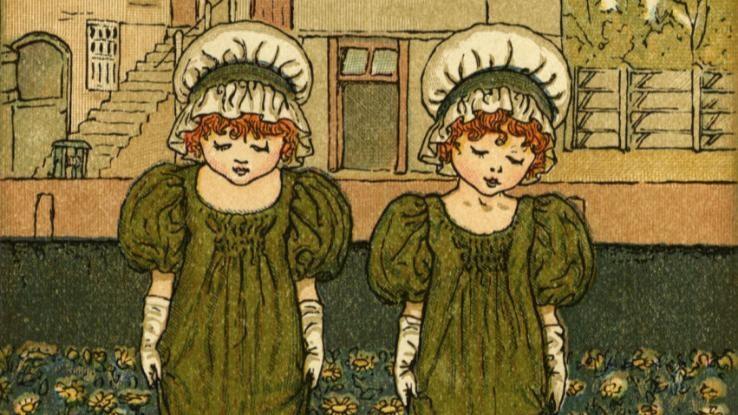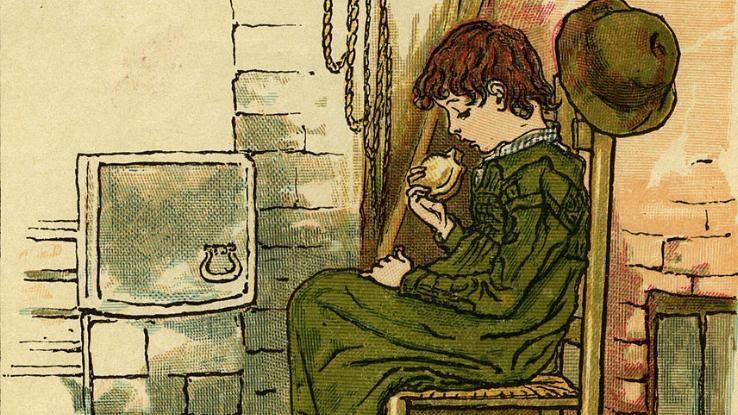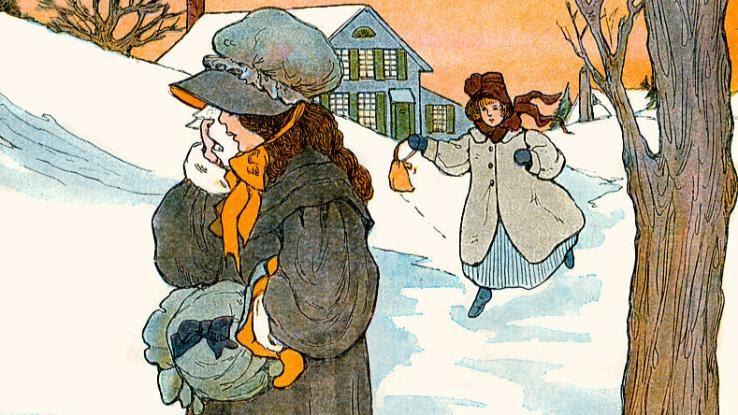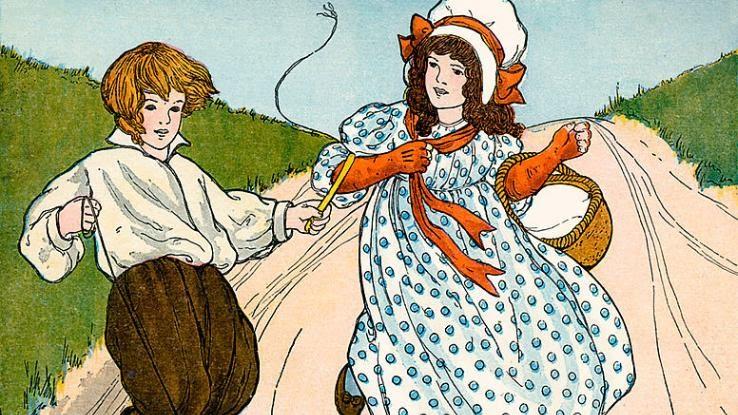“Wednesday’s Child is Full of Woe”: The Monday’s Child Poem & Its Meanings

The line “Wednesday’s child is full of woe” is a part of a nursery rhyme known as “Monday’s Child,” which is often attributed to Mother Goose. In essence, the line predicts that children born on Wednesday will be sad. But where exactly did “Monday’s Child” originate and what, exactly, are Wednesday babies so sad about? Let’s rewind a little and find out what history has to say about Wednesday children and their woes.
Wednesday’s Child Is Full of Woe Meaning
First and foremost, in order to figure out why Wednesday’s child is full of woe, we need to take historical context into consideration. So, when did the “Monday’s Child” poem first appear?

While often associated with Mother Goose, the poem may not have actually originated with the queen or all nursery rhymes. Moreover, the first time that “Monday’s Child” appeared in print was in the second volume of an 1838 book called Traditions, Legends, Superstitions, and Sketches of Devonshire: On the Borders of the Tamar and the Tavy, Illustrative of Its Manners, Customs, History, Antiquities, Scenery, and Natural History by Anna Eliza Bray. (Quite the title, right?)
Due to the book’s overly ambitious title, it’s often simply referred to as A.E. Bray’s Traditions of Devonshire. That said, it’s quite possible that “Monday’s Child” may have been circulating for decades or even centuries before it was first committed to the page. This theory finds support in yet another book called Oral and literate culture in England, 1500-1700, by Adam Fox. Fox recalls how the Elizabethan writer Thomas Nashe once spoke about a group of old women in 1570s Suffox who would “tell what luck euerie one should haue by the day of the weeke he was borne on.”
What this means is that attributing certain characteristics to people, based on which day of the week they were born on, was apparently a thing back in 16th century England. (These days, we tend to rely on astrological signs for that.) So, on the surface, “Wednesday’s child is full of woe” may mean exactly what it sounds like — that, typically, babies born on Wednesday may tend to be a little moodier.
Why Is Wednesday’s Child Full Of Woe?
Let’s take a stab at figuring out why Wednesday’s child was so full of woe in the first place. In the very least, we have a few educated guesses. For example, one theory goes back to the etymology of the days of the week — many of which derive their names from Anglo-Saxon gods. Wednesday first got its start as “Wodnesdaeg” and was named after Woden, who is more commonly known as Odin.

As the chief god of the Norse pantheon, Odin was not only a fierce king and warrior but also a poet who loved traveling the earth disguised as a traveler. Seeking knowledge above all else, Odin was a serious personality who even sacrificed one of his eyes in the pursuit of enlightenment. It’s possible that the woe of Wednesday’s child could be a reflection of some of the more serious attributes of Odin, the weekday’s namesake. “Woe” may not be quite as tragic as it sounds and may have simply indicated a more serious demeanor — or even a longing to understand the deeper mysteries of life.
Interestingly, however, there are a variety of different versions of “Monday’s Child,” some of which tell a much different story about Wednesday babies. In a Scottish version of the poem, Wednesday’s child is “merry and glad,” while Thursday’s child is “wise and sad.”
Monday’s Child Poem
Curious to see what “Monday’s Child” says about you based on the day you were born? One way to start is to read the poem in its entirety.

- Monday’s child is fair of face,
- Tuesday’s child is full of grace,
- Wednesday’s child is full of woe,
- Thursday’s child has far to go,
- Friday’s child is loving and giving,
- Saturday’s child works hard for a living,
- And the child that is born on the Sabbath day
- Is bonny and blithe, and good and gay.
If you’re not sure exactly what your day’s prediction is trying to say about you, rest assured that you’re not alone. Let’s take a closer look.
- Monday’s child is “fair of face.” So, what’s that supposed to mean? According to the Merriam-Webster, “fair-faced” can be used to describe someone who has a light complexion or someone who is beautiful.
- Tuesday’s child seems pretty straightforward. They possess grace, which can either mean an elegant demeanor or general courteousness and goodwill.
- What does it mean that Thursday’s child has “far to go?” It may be easier to rearrange the words a bit and think of it as a prediction that Thursday’s child will “go far.” This can be a metaphor for success in life or, perhaps, that people born on Thursdays will love to travel.
- Friday’s child is “loving and giving,” indicating a shamelessly big heart.
- Ironically, Saturday’s child is destined to work hard for a living, even though Saturday has become the day that most of us use as a time to relax. This may go back to a time when working on Sundays was looked down upon and people had to try to cram last-minute chores in on Saturday.
- Last but not least, Sunday’s child, being born on the Sabbath, will be bonny and blithe, and good and gay. For those who may be unfamiliar with those terms, bonny means attractive; blithe means joyous; gay means merry or cheerful; and good means, well, good. Given how folks once revered the Sabbath, it makes sense that children who are born on what many consider the holiest day of the week would be blessed with positive traits.
Overall, the rhythm and all its variations were more than likely used as a handy way to teach children the names of the days of the week. While some people may have taken their predictions a bit more seriously back in the old days, there are now plenty of versions to choose from if you find yours less than flattering.





